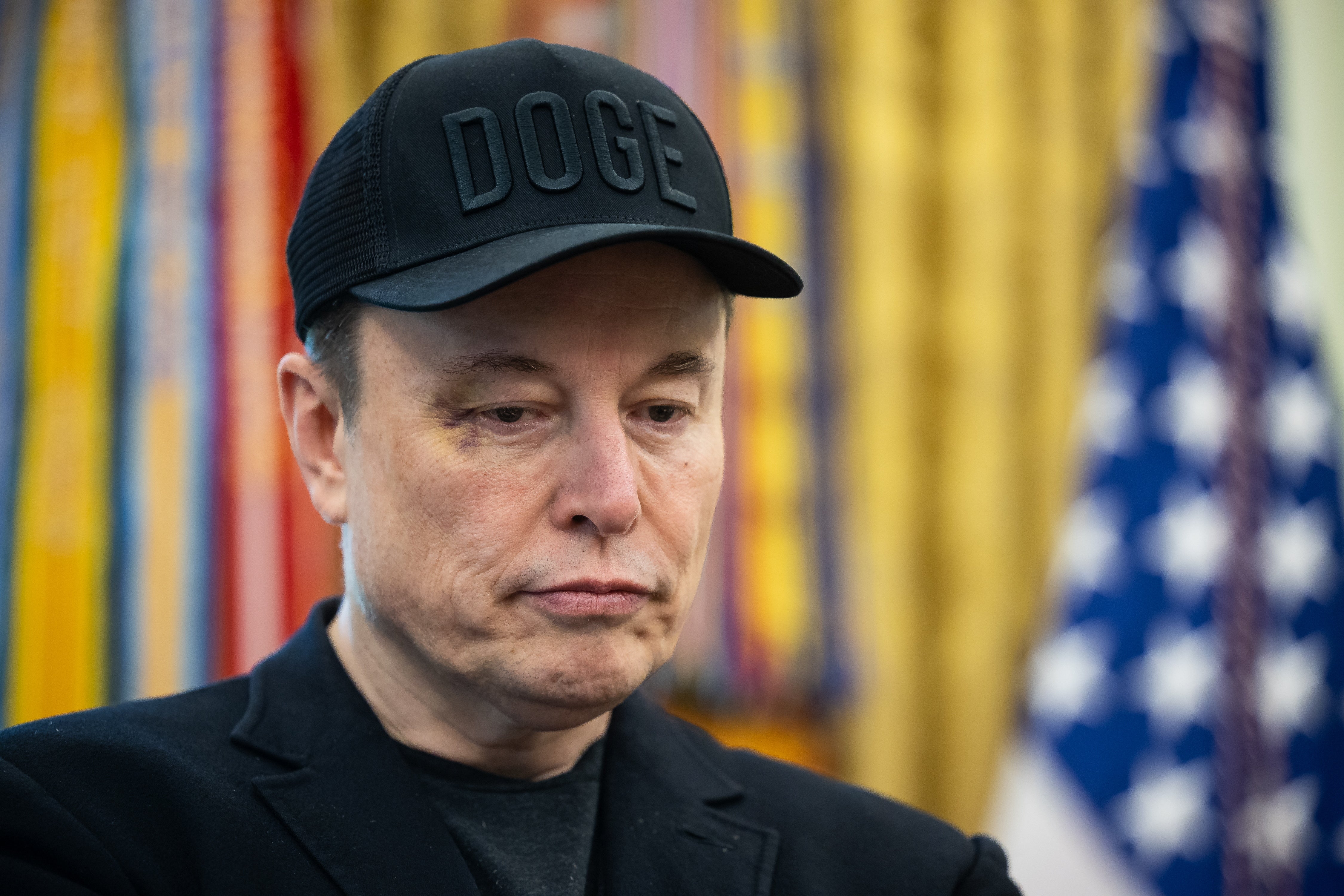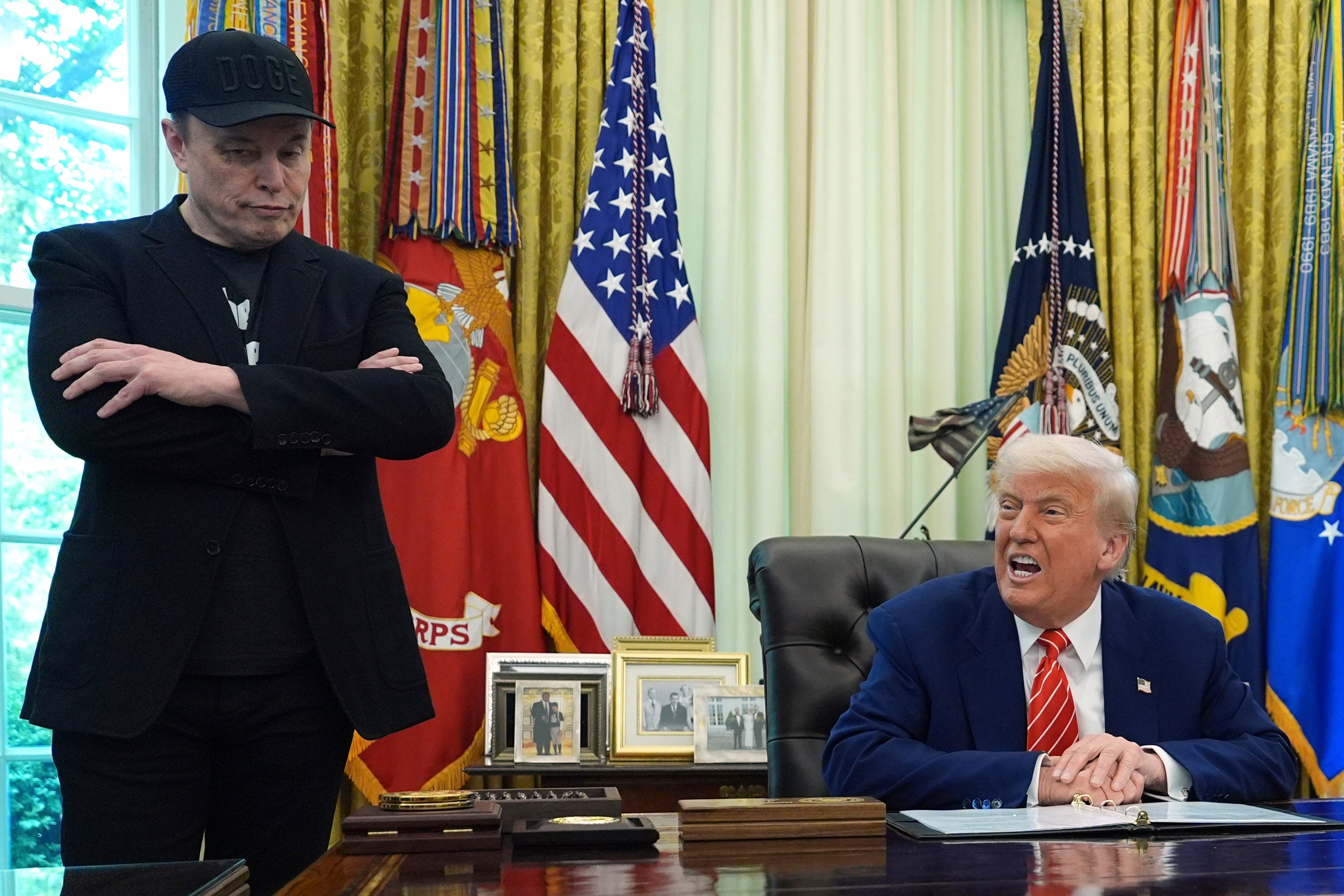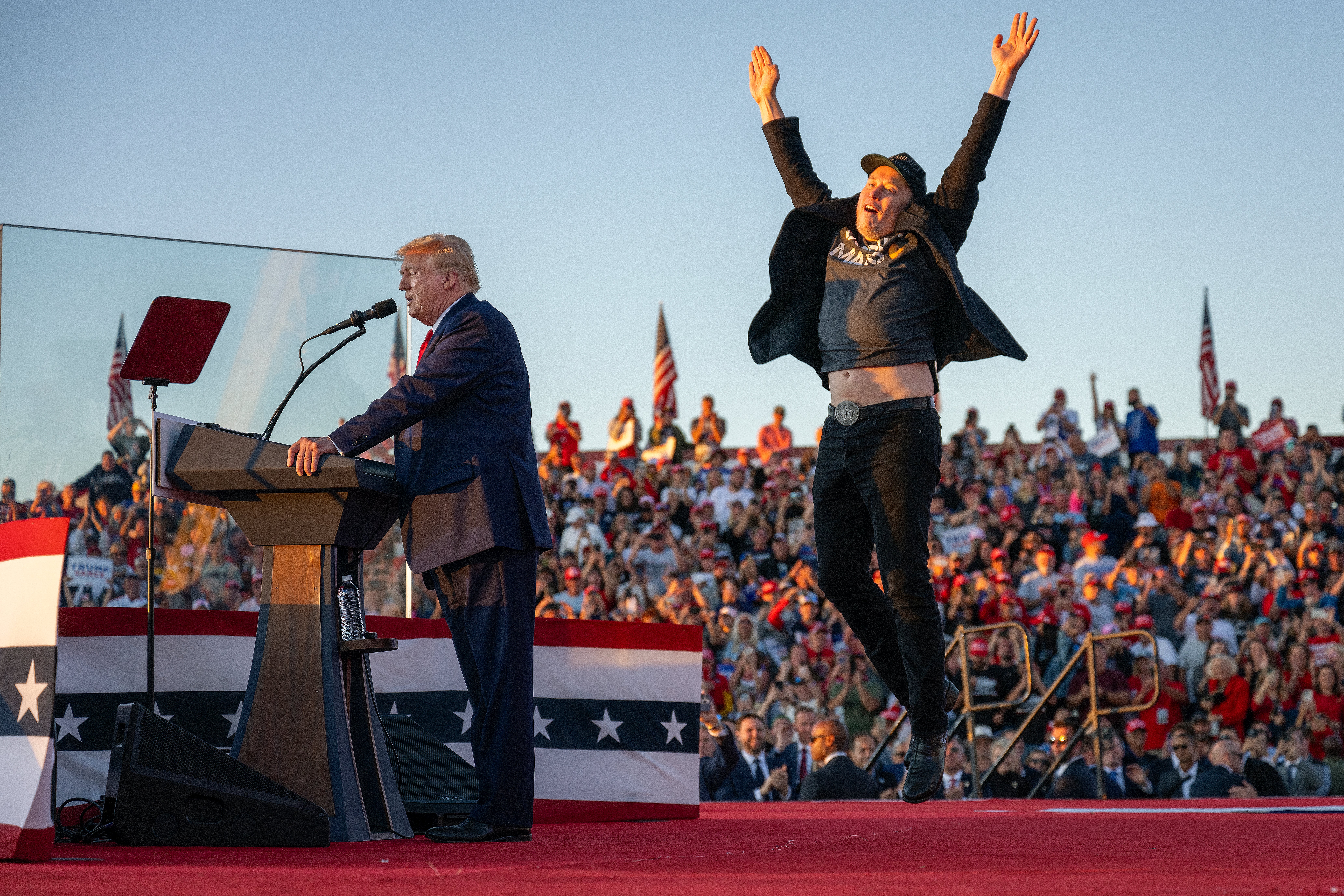The dark past of Trump and Musk that made their bust up inevitable
The bromance between president Donald Trump and first buddy Elon Musk, once forged in a shared pursuit of power and influence, is well and truly over. But theirs was a toxic relationship rooted in dominance and ruthlessness, which was always destined for collapse, reports Alex Hannaford

On the surface, it was a dream reciprocal alliance. Musk reportedly contributed some $300m (£220m) to support Trump and other Republicans in the November elections, while Trump, impressed with the disruptive energy of the tech billionaire, got him to head up the so-called Department of Government Efficiency (Doge).
But just five months later, their relationship has fallen apart in a spectacularly explosive fashion.
Earlier this week, Musk, whose Tesla business has been hit hard by his association with the president, slammed Trump’s flagship tax and spending bill, calling it a “disgusting abomination”. That was just a foretaste of what was to follow.
By last night, Musk had called for Trump to be impeached, alleged the president was named in the Epstein files, and said that without his support Trump would never have won the election. In return, Trump said Musk had gone ‘crazy’ and threatened to terminate his multi-billion-dollar government contracts.
The outburst came just days after an Oval Office send-off from the president, which was attended by Musk sporting a black eye. Trump presented him with a brown box containing a large golden key emblazoned with the White House insignia, which he said he only gave to “very special people”.
Less than a week has passed and that special relationship is now becoming one of enmity and rage. It was, perhaps, a relationship that was always destined to end up this way.
The Independent noted this week that concerns Musk raised about the administration’s crackdown on immigration (he wanted access to the world’s best scientific brains, regardless of where they’re from) were routinely ignored. And the frustration between him and the Republicans has been stewing for months.
“He’s a complete joke. He had no idea what the f*** he was doing,” one Republican told Axios anonymously, fearing retaliation from Musk. “Nobody really wanted him here. We couldn’t wait to get rid of him.”
Axios also reported that House speaker Mike Johnson told House Republicans in a closed-door conference meeting on Wednesday that Trump himself is “pi**** off” at Musk. Johnson said at a press conference after the meeting that he talks to Trump “multiple times a day” and that the president is “not delighted that Elon did a 180”. Another Republican backed up that assertion, told Axios: “I knew it was a matter of time before the two alpha males would explode, fight each other.”
Elsewhere, Trump’s former White House chief strategist Steve Bannon, a bitter enemy of Musk, has suggested that the first schism in their relationship came in March when the president refused to show the billionaire the Pentagon’s attack plans for a hypothetical war with China. Speaking to The Atlantic last month, Bannon said of that moment: “You could feel it. Everything changed. The fever had been broken.”

Others believe the final nail came when Trump abruptly decided over the weekend to withdraw the nomination of Musk ally and investor, Jared Isaacman, to be Nasa’s next administrator. Appearing on the All-In podcast yesterday, Isaacman said he was disappointed when he learned that his nomination had been revoked, noting that the fact it coincided with Musk’s departure from the White House wasn’t a coincidence. “There were some people who had some axes to grind, and I was a good visible target,” he said. This claim has been disputed, however, with complaints from Republican senators about Isaacman’s track record as a Democratic donor also given as a reason for the decision.
That Musk now feels angry and disillusioned is no surprise to those who have long believed that such oversized egos were destined to collide. But the roots of this volatile dynamic go beyond tariffs and immigration. Some say the toxicity of their relationship stems from the formative paternal influences that shaped both men.
For Donald Trump, the blueprint for leadership was laid by his stern and demanding father, Fred Trump Sr. From a very young age, Donald was taught that there were only “killers” (winners) and “losers”, a lesson his father relentlessly imparted. According to Tony Schwartz, who co-authored The Art of the Deal with Trump, Fred was a “very brutal guy” with “very, very little emotional intelligence”. “I strongly suspect that he had a relationship with his father that accounts for a lot of what he became,” Schwartz told PBS’s Frontline website.

Trump’s niece, Mary, a clinical psychologist who wrote the bestselling book Too Much and Never Enough: How My Family Created the World's Most Dangerous Man, says Fred Sr “destroyed” Donald by hindering his “ability to develop and experience the entire spectrum of human emotion”.
Elon Musk’s own childhood was similarly difficult and his relationship with his father, Errol Musk, was fraught with tension. Musk said in a 2022 Ted talk: “I did not have a happy childhood, to be frank. It was quite rough.” His father is said to have taken the side of his son’s school bullies, calling him “worthless”, something which he has denied. When Elon Musk moved to America, Errol allegedly told him: “You’ll be back in a few months. You will never be successful.”
Being raised in environments where dominance, ruthlessness, and an inability to show weakness are paramount is unhelpful, particularly when it comes to father-son relationships.
“In my field,” says Dr Frank Ochberg, a pioneering psychiatrist and trauma expert who helped define PTSD, “if you have been abused by a parent when you’re very young, that’s of consequence. And there are various ways in which people who eventually had a powerful impact on the world for better or worse are evaluated in terms of parental impact.
“It doesn’t take a rocket scientist – although Elon is a rocket scientist – to say having a bully as a father can make you a bully as a man, and an effective one at that. And if you do have the combination of Musk and Trump together, you can also empower other bullies, male and female – and they have.”

Ochberg says Trump and Musk have both succeeded in bringing bullies and bullying tendencies into what we might consider sacred spaces – the workplace and, in Trump’s case, one we associate with high morality, such as the seat of government. But, he says, “I think seeing them publicly disagreeing with each other diminishes the moral and political force of each of them.”
It seems that a long-term, equitable partnership between the two was always an impossibility, especially in a relationship where one, Trump, demands utter loyalty, which Musk – a man his biographer Walter Isaacson points out engages “demon mode”, a state of intense focus and anger while working on projects – is unwilling to give.
Cornell law professor Sarah Kreps notes, there’s simply “not room at the centre of politics for two such massive egos”.
It was only November when Trump’s son Eric, dismissing reports of a breakdown in his father’s relationship with Musk, said his dad “loves” and “adores” the SpaceX owner, and considers him a “super genius”.
In the end, perhaps this was always the only way it could go: two men raised in the shadow of domineering and difficult fathers with something to prove; both intoxicated by their own authority, colliding amid drama and chaos of their own making. The rift between Trump and Musk may read like a celebrity feud, but it’s far more consequential. For now, the pair remain locked in a game of egos, and the rest of us are just along for the ride.



Join our commenting forum
Join thought-provoking conversations, follow other Independent readers and see their replies
Comments